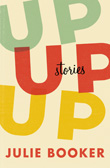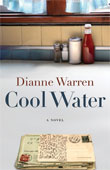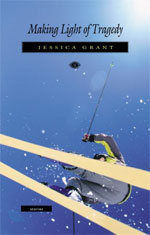Want to follow along with the Canada Reads 2012 debates and add your own element of challenge to it, that will benefit the library, book or literacy cause of your choice? Read on!
The Canada Reads: True Stories battle lines have been drawn. Here are the five non-fiction titles and their defenders, who will launch into extensive literary debate (not to mention trash talking) starting now and culminating in a series of debates come February:
- Arlene Dickinson (@ArleneDickinson) defends Prisoner of Tehran by Marina Nemat (Penguin Canada)
Read my review of Prisoner of Tehran, by Marina Nemat - Anne-France Goldwater defends The Tiger by John Vaillant (@JohnVaillant)(Vintage Canada)
Read my review of The Tiger, by John Vaillant - Stacey McKenzie (@StaceyMcKenzie1) defends On a Cold Road by Dave Bidini (@hockeyesque) (McClelland & Stewart)
- Shad (@shadkmusic) defends Something Fierce by Carmen Aguirre (Douglas & McIntyre)
Read my review of Something Fierce, by Carmen Aguirre - Alan Thicke (@alan_thicke) defends The Game by Ken Dryden (Wiley Canada)
Read my review of The Game, by Ken Dryden
As host of the debates Jian Ghomeshi contends, “With this combination of powerful personalities and compelling true stories, we expect sparks to fly in the debates.”
Leading up to the debates, here’s a way to get some more sparks flying between you and your book friends and tweeps.
- Pair up with a book friend or tweep and challenge each other to two things: identify a favourite library, book or literacy cause, and predict the outcome of the Canada Reads 2012 debates. Speak aloud your favourite cause, but keep your predictions under wraps (for now).
- Write down your Canada Reads predictions – the order in which the 5 books will finish – and seal them in an envelope.
- Exchange your envelope with your book friend, who will also have sealed his/her predictions.
- Shake hands with your book friend, and commit to two things: to not open those envelopes until the Canada Reads debates finish in February, 2012, and to donate to your friend’s library, book or literacy cause if your predictions are the least accurate of the two.
- Tweet who you are pairing up with for the challenge and promote the library, book or literacy cause that will benefit when you win and your opponent must make a donation. Tweet to @BookMadam and/or @bookgaga, and we’ll keep track of everyone who is taking the challenge.
- When all is revealed in February, you and your book friend/challenge partner open your envelopes and determine whose predictions were closest. Whoever predicted closest to the final Canada Reads results asks their challenge partner to make a donation as the “loser” (no one’s really a loser, though) of the bet.
- Tweet your results and mention again the cause that benefits from your challenge.
Julie Wilson (aka BookMadam) and I have already challenged each other to make our Canada Reads predictions. At the official exchange of the envelopes, we’ll tweet the causes who will stand to benefit from our challenge. Won’t you join us?
Happy reading or re-reading of the Canada Reads contenders!

Named by Open Book Ontario as a Rabble-Rouser, Julie Wilson is the Literary Voyeur behind SeenReading.com, The Madam at Book Madam & Associates and the Host of CanadianBookshelf.com. Julie’s short fiction collection, Seen Reading, will publish with Freehand Books in April 2012. Follow her on Twitter: @BookMadam and @SeenReading.







